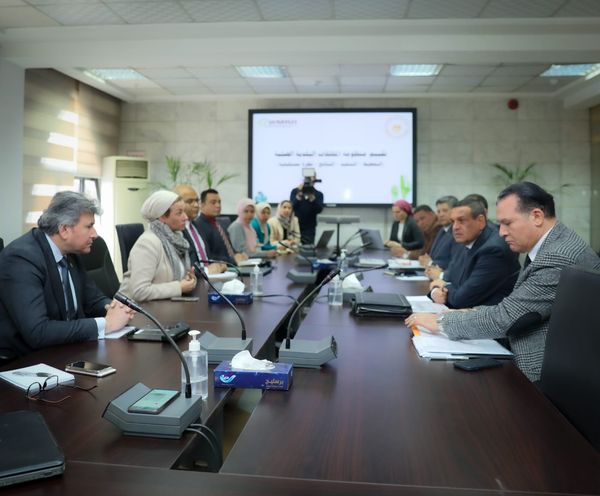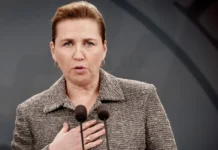Egypt: The Minister of Environment, Yasmin Fouad, recently met with the Minister of Local Development and Major General, Hisham Amna in order to review the executive position of the waste management system and mechanisms to reduce funding gaps.
On her part, Minister Fouad stated that the continued implementation of the system requires the completion of infrastructure implementation, further engagement of the private sector, and maximization of financial resources. The initiative has been on the move with the motive of fulfilling the duties instructed by the Prime Minister.
The Minister of Local Development, Hisham Amna, also pointed out that “We strive to achieve the maximum benefit from the infrastructure projects of the waste system in the governorates.
The private sector has to play important in managing factories and health cemeteries to contribute to the sustainability of the system.” The ministry is keen to improve the capacity of local administration workers regarding collection operations and street cleaning, he added.
The reports have stated that Yasmin Fouad, Minister of the Environment, met with Major General Hisham Amna, Minister of Local Development, to discuss the waste file and assess the implementation of the system since its acceptance so far.
The meeting also focused on assessing its executive position and targets for the coming period and looking for mechanisms to reduce the funding gap to implement the tasks of the Prime Minister under the supervision of a number of ministry leaders.
The meeting also hosted other top officials which, includes Tariq Al-Arabi, the executive President of the Waste Management System; Ali Abu Sunnah, the executive President of the Environmental Affairs Agency; Dr Hazem Al-Dananan, the director of the National Solid Waste Management Program and the Ministry of Local Development.
Along with both major general Osama Jad, the permanent agent of the Ministry of Local Development, and Dr Hisham Al-Halbawi, Assistant Minister for National Projects, Dr Khaled Qasim, Assistant to the Minister for Institutional Development and Dr Walaa Jad Alkarim, Director of the Central Unit for the “Hayat Kareem” initiative.
At the beginning of the meeting, Minister Yasmin Fouad affirmed the ongoing coordination and cooperation between the Ministries of Environment and Local Development in the integrated management of the municipal solid waste system and the need to assess the system in terms of planning and implementation on the ground in order to achieve concrete results and continuously study and evaluate the costs of the system.
Ministers listened to the presentation by Tariq Al Arabi, Executive Director of the Waste Management Organization, a summary of the position of the waste system in Egypt before the approval of the new system in 2017, where the collection rates were 60%, and waste burial rates were 60% and the presence of 3 random pranks.
The data presented led to the accumulation of waste on the streets, self-ignition and the waste of value added from the collection of raw materials for RDF alternative fuels, as well as the negative economic, social and health impact on waste-piling areas, has been designed an integrated municipal solid waste system in Egypt.
Furthermore, Environment Minister pointed out that the approval of the system was the result of the agreement between the government and a plan for a new waste management system was presented to the President to end the problem.
Under his sovereignty, it was directed to begin implementation, and it was agreed that the system should include three programs, such as infrastructure within cooperation protocols between environment ministries Local Development, military production, and the Arab Manufacturing Authority at the cost of 8 . 5 One billion pounds.
According to a plan prepared through a major consultative process involving university professors, a program of operating contracts aimed at engaging the private sector, and a program of institutional support through supporting laws.
The Minister of the Environment reviewed the executive position of the infrastructure program of intermediary stations, recycling plants and cemeteries in terms of implementation and cost, and the benefit of establishing intermediary stations in reducing the cost of collection and reducing the appearance of expatriates.


